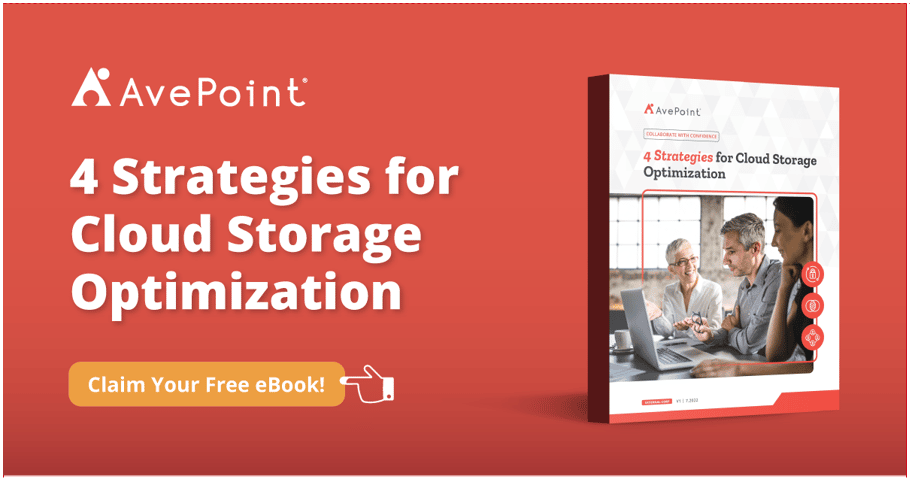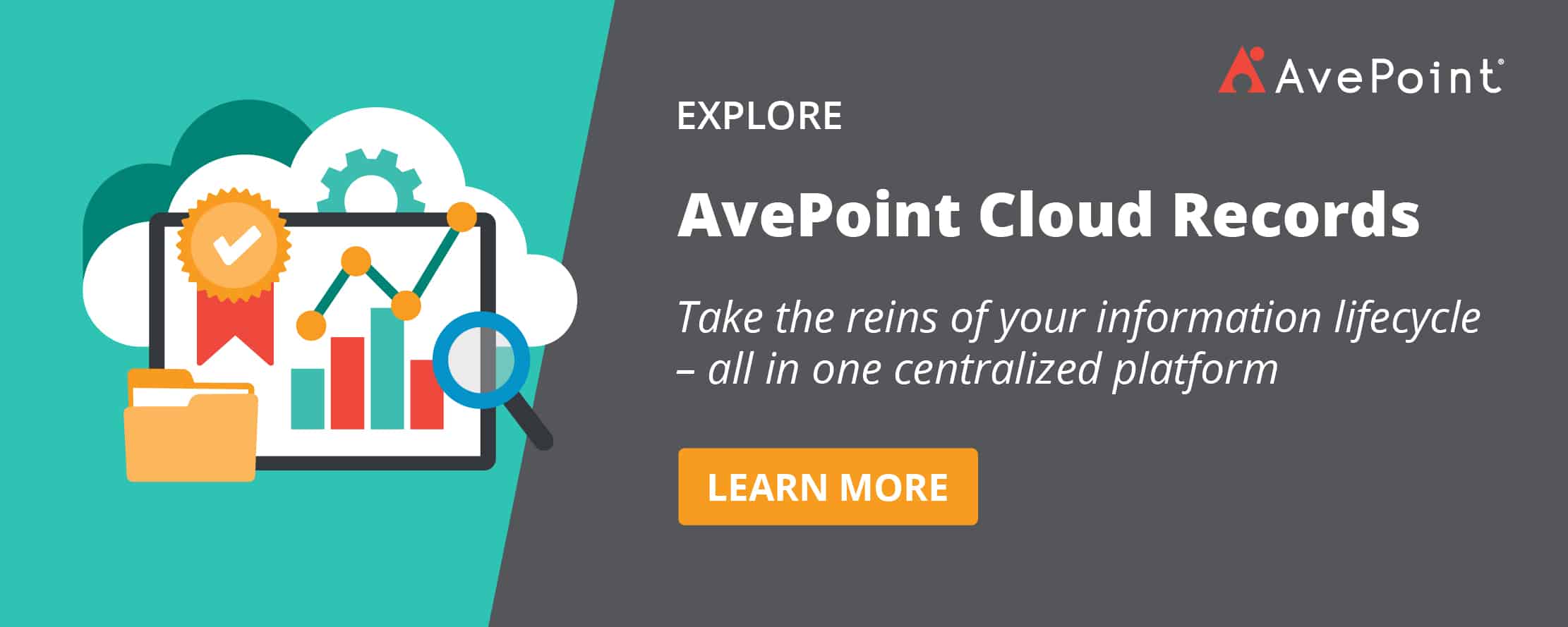Why It’s Time to Change Your Approach to Information Management


With Microsoft 365 adoption, cloud storage adoption, and volumes of data all increasing at unabated rates, most organizations are struggling to manage information efficiently.
Surveying 300 senior information management executives, the Association for Intelligent Information Management found that “each department is doing their own thing, creating multiple duplicates of the same content, and also inconsistent practices within each department on what and how information is captured.”
As a result, information remains siloed, containing duplicated records and posing difficulty in managing access rights and permissions.
The research cited the shortage of forward-thinking and open-mindedness, as well as the lack of budget and buy-in from executives, as common factors that hold back information management’s potential to deliver significant results to the organization.
A spinoff of these challenges means data privacy issues or other regulatory breaches remain a heightened risk for many organisations. According to TechTarget, many organisations have data retention policies in place, but a lack of sufficient information management means they are not able to follow through with these policies. This creates additional risk, especially around Personally Identifiable Information (PII), which is tightly governed by regulations such as the European GDPR.
Read: Why Managing Integrity is Vital to Information Management
Worst of all, failing to move with the times with information management renders organizations incapable of maximizing the value of their most important asset – data.
Evangelize the benefits of information management
Building a proper information management strategy – and obtaining the requisite board-level buy-in – should start by highlighting the business benefits.
By introducing effective overarching data management strategies, organizations can benefit from a wealth of information to control, manage and drive new value from their data.
Well-structured information management initiatives will also improve process efficiency and user productivity, empower rapid access to information by breaking down silos, and help leaders create better-informed business decisions.
The success criteria of information management
As with any change-led initiative, selling the value of information management is an essential ingredient.
Here are some of the success criteria you can achieve with an effective approach to information management across the organisation:
- Ensure SharePoint storage size stays below quota
- Ensure less data is stored in a cost-efficient, compliant, and sustainable way
- Establish a future state architecture for information with every file classified for lifecycle policies and access control policies
- Smooth file migration within and into the platform in line with future state design
- Manage the balance of built-in retention policies on your platforms (SharePoint Online in particular) and ensure it does not (heavily) affect storage costs
- Control data hygiene through auto-deletion, expiration, and archiving
- Govern oversharing / exposure of data
- Ensure that the creation of data containers is controlled while still enabling easy request and use
- Develop mature information libraries for easily finding data
Making your information work for you
With AvePoint Cloud Records, it is possible to change how you manage your information. Records managers can manage end-to-end information lifecycles, not just focus on end users. It gives the ability to navigate common records compliance requirements, create retention and disposal schedules, and remove the burden of traditional records management in Microsoft 365, SharePoint on-premises, SharePoint Online, and Exchange Online.
Learn how to navigate common records compliance requirements, create retention and disposal schedules, and ensure secure information management by downloading this ebook: Microsoft 365 Records Management Roadmap | AvePoint.




